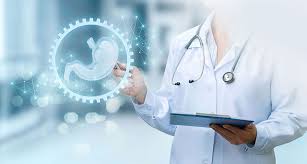Gastroenterology Conferences

GASTROENTEROLOGY:
Gastroenterology is the medical specialty that focuses on the digestive system, including the oesophagus, stomach, small intestine, large intestine, pancreas, liver, and gallbladder. The digestive system is essential for processing food and absorbing nutrients, and any problems in this system can lead to a range of health issues. In this blog, we will explore some of the key topics in gastroenterology and their significance.
Digestive Disorders
Digestive disorders are among the most common health problems affecting people of all ages. These disorders can include everything from minor issues like heartburn and constipation to more serious conditions like Crohn's disease and colorectal cancer. Gastroenterologists are trained to diagnose and treat a wide range of digestive disorders, using techniques such as endoscopy, colonoscopy, and imaging tests.
Inflammatory Bowel Disease (IBD)
Inflammatory bowel disease (IBD) is a chronic condition that causes inflammation in the digestive tract. This condition includes Crohn's disease and ulcerative colitis, which can cause symptoms such as abdominal pain, diarrhoea, and rectal bleeding. While there is no cure for IBD, treatment options include medications to reduce inflammation, surgery to remove affected portions of the digestive tract, and lifestyle modifications such as dietary changes and stress management.
Liver Disease
The liver is an essential organ that plays a vital role in digesting food and filtering toxins from the body. Liver disease can be caused by a variety of factors, including viral infections, alcohol consumption, and fatty liver disease. Symptoms of liver disease can include fatigue, jaundice, and abdominal pain. Treatment options for liver disease vary depending on the underlying cause and can include medications, lifestyle changes, and in some cases, liver transplant.
Gastroesophageal Reflux Disease (GERD)
Gastroesophageal reflux disease (GERD) is a condition that occurs when stomach acid flows back into the oesophagus, causing irritation and discomfort. Symptoms of GERD can include heartburn, difficulty swallowing, and chest pain. Treatment options for GERD include lifestyle modifications such as avoiding trigger foods, taking medications to reduce acid production, and in some cases, surgery to reinforce the lower oesophageal sphincter
Colon Cancer
Colon cancer is a type of cancer that affects the colon or rectum, and is the third most common cancer in both men and women. Symptoms of colon cancer can include changes in bowel habits, rectal bleeding, and abdominal pain. Screening for colon cancer is recommended for people over the age of 50, and can include colonoscopy, stool tests, and imaging tests. Treatment options for colon cancer vary depending on the stage of the cancer and can include surgery, chemotherapy, and radiation therapy.